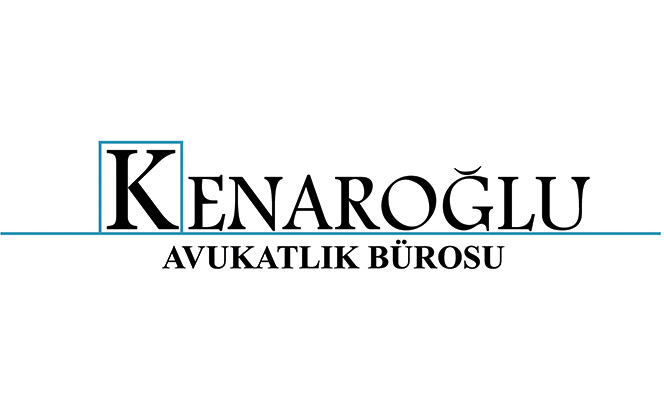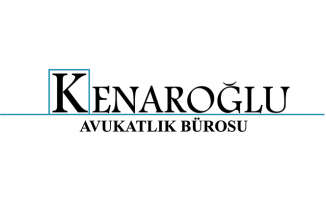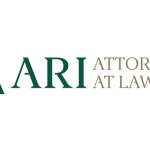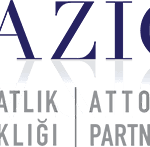Under the Industrial Property Law numbered 6769 (IP Law), an important obligation imposed on trade mark owners after obtaining registration is the requirement to use the trade mark. The IP Law attaches two important potential consequences for non-use of the trade marks, after the completion of the five-year grace period. First, the trade mark can be revoked due to non-use upon the request of the interested parties and second, its enforceability can be weakened by a non-use defence asserted by the applicants in the opposition actions before the Turkish Patent and Trademark Office (the Office) or by the defendants in invalidation or infringement actions before the courts.
The non-use defence has been introduced as a revenue granted to applicants and defendants for the first time with the IP Law, with its entry into force in 2017. This expanded the potential consequences that could be faced by trade mark owners with vulnerable trade marks, by adding to the already existing risk of facing a non-use revocation claim under the late Decree Law numbered 556 on the Protection of Trademarks (Trademark Decree Law). Changes in practice will also take place as of 10 January 2024, with the transfer of the authority of the courts to evaluate non-use revocation claims to the Office. Thus, trade mark owners with trade marks registered for more than five years in Turkey should be cautious of the various avenues available to third parties against their trade marks, when deciding on enforcing their rights.
The Requirement of Use under the IP Law
The primary clause governing the use requirement is Article 9 of the IP Law, which indicates that if, within a period of five years following the date of registration, a trade mark has not been put to genuine use without a justifiable reason or if the use has been suspended for an uninterrupted period of five years, the trade mark shall be revoked.
The relevant provision grants a five-year grace period as of the registration date for a trade mark to be put to use, during which the trade mark cannot be challenged due to non-use. After the completion of the grace period, the trade mark becomes vulnerable against a revocation claim based on non-use, as well as against a potential non-use defence in the opposition, invalidation and/or infringement proceedings.1
When faced with a potential revocation claim or a non-use defence, the burden of proof is on the trade mark owner, who must either prove that the trade mark has been put to genuine use in Turkey by submitting solid evidences or that there were ‘justified reasons’ for not using the trade mark, occurring beyond its willpower and control, which makes the use of the trade mark impossible.2
The Principles of Use under the IP Law
a. Genuine use of the trade mark
Under Article 9 of the IP Law, the use of the trade mark should be ‘genuine’ in order to fulfil the use requirement. The IP Law makes no definition of what constitutes ‘genuine’ use of the trade mark, however, it is accepted this concept encompasses; (i) a use frequent enough to enable the trade mark to fulfil its essential function of identifying the source or origin of the relevant goods and services3, (ii) use in commerce, with the intent of creating a market share.4
There is no set standard as to the volume or frequency required to accept existence of genuine use. The evaluation of whether a trade mark has been put to genuine is carried out on a case-by-case basis, by taking into consideration the nature of the goods and/or services covered by the registration.
b. Use of the trade mark for the goods/services covered by the registration
In order to constitute use within the meaning of the IP Law, the trade mark must also be used for the goods and/or services for which it has been registered. Use for goods and/or services similar to those covered by the registration is not sufficient to satisfy this requirement.5 If use of the trade mark can only be proven for certain goods/services covered by the registration, the trade mark would be partially revoked for goods/services for which use could not be proven.6
c. Use of the trade mark by its owner or other authorised third parties
Under Article 9 of the IP Law, the trade mark must be used either by the trade mark owner or by the third parties authorised by the trade mark owner.7 Accordingly, unauthorised uses of the trade mark will not constitute trade mark use within the meaning of the IP Law.
d. Use of the trade mark in Turkey
The trade mark must lastly be used in Turkey (in any part of Turkey) to meet the use requirement under Article 9 of the IP Law. Placement of the trade mark on goods or their packages within Turkey with the purpose of exporting the goods abroad is also considered as trade mark use within the meaning of the IP Law8, as well as the online use of the trade marks accessible in Turkey.9
Potential Consequences of Non-Use under the IP Law
The IP Law regulates two main potential consequences for non-use of the trade marks upon the completion of the five-year grace period. First, partial or total revocation of the trade mark based on non-use can be claimed by any interested parties.10 Secondly, applicants in the opposition actions or defendants in invalidation and/or infringement actions initiated by the trade mark owner have the right to assert a ‘non-use defence’ against the trade mark owner’s vulnerable trade marks, which are the bases of these actions.11
It should be noted that under the IP Law, neither the courts nor the Office has the authority to conduct an ex-officio examination of whether the use requirement is satisfied for the trade marks after the completion of the relevant grace period. Thus, a revocation claim or a non-use defence must be asserted by the third parties in order for the consequences attached to non-use of vulnerable trade marks to materialise.
a. Revocation of the trade mark based on non-use
The heaviest consequence regulated under the IP Law for the non-use of the trade marks is the partial or total revocation of the trade mark based on non-use upon a claim asserted by the interested parties. Under the late Trademark Decree Law, revocation based on non-use of a trade mark could only be claimed in a court action filed against the trade mark owner. Under Article 26 of the IP Law, the authority to decide on partial or total revocation of trade marks has been transferred from the courts to the Office. However, the enforcement date of the relevant provision granting this authority to the Office has been postponed for seven years and thus, the Office will begin hearing revocation claims based on non-use after 10 January 2024.
Article 26 of the IP Law has introduced a new and more simplified procedure for the evaluation of non-use revocation claims by the Office. While it has been enacted that the courts shall also follow this procedure until the authority transfer takes effect, it is observed in practice that the courts continue to follow the general jurisdiction procedure under the Turkish Civil Procedure Law numbered 6100. It is expected that the revocation proceedings would be expedited once the TPO begins to evaluate non-use revocation claims, but the actual impact of this change in practice is yet to be seen.
b. The non-use defence
Under the Trademark Decree Law, the only potential consequence attached to non-use of vulnerable trade marks was their partial or total revocation by the courts upon a revocation claim asserted by the third parties. The non-use defence has been introduced for the first time by the IP Law as an important revenue against vulnerable trade marks which are the basis of opposition, invalidation and/or infringement actions initiated by the trade mark owner.
Under Article 19 of the IP Law, applicants are entitled to challenge the oppositions against their applications by submitting a non-use defence against the opponents’ vulnerable senior trade marks on which the oppositions are based. This requires the opponent to prove that their trade marks have been properly put to use in the Turkish market within five years prior to the application date of the opposed application. The senior trade marks for which the opponent cannot prove its proper use within the past five years would be excluded from the basis of the opposition. If use can only be proven for certain goods and/or services, the Office only takes into consideration such goods and/or services in the evaluation of the opposition.
It should be noted that failure to prove use of the trade marks will only affect the Office’s examination of the opposition ground based on likelihood of confusion between the trade marks and will not affect the examination of other opposition grounds, such as well-known status, bad-faith etc.
Under Articles 25 and 29 of the IP Law, the non-use defence can also be raised by the defendants before the courts in invalidation or infringement actions filed by the trade mark owners, against their trade marks which have been registered for more than five years at the filing date of these actions. In such case, the owner must prove genuine use of its ground trade marks for the five-year term prior to the filing date of the actions. For invalidation actions, if the trade marks, which are the basis of the action, are registered for at least five years at the application date of the defendants’ trade marks, the trade mark owner must also additionally prove use of the trade marks for the five-year term prior to the application date of the defendants’ trade marks.
It is important to note that failure to prove use of the ground trade marks in the face of a non-use defence will not lead to their revocation. In order for the trade mark to be revoked, a non-use revocation claim should be separately asserted by the counterparty via a non-use revocation action before the courts.
Conclusion
The IP Law has expanded the scope of the potential consequences attached to non-use of the trade marks, by granting the option to the applicants and defendants to raise the non-use defence against trade mark owners’ vulnerable trade marks in opposition, invalidation and infringement actions. Further changes in the practice will also take place in respect of the non-use revocation claims asserted against vulnerable trade marks, once the TPO begins to hear these claims as of 10 January 2024. Thus, trade mark owners with trade marks registered for more than five years should carefully consider these potential consequences in deciding to enforce their trade marks against third parties.
Footnotes
1. Articles 9, 19, 25, 26 and 29 of the
IP Law.
2. Turkish Patent and Trademark Office, Proof of Use Guideline, 2017, www.turkpatent.gov.tr/TURKPATENT/resources/temp/B4609CED-66A9-4096-A33A-DA99A1A0DE04.pdf, p. 30, accessed 14 March 2022.
3. Article 4 of the IP Law.
4. Preambles of the Draft IP Law, p8.
5. Decision no. 2013/348 E, 2013/18993 K. dated 5 February 2013 and Decision no. 2011/11201E. and 2011/15344 K. dated 17 November 2011 issued by the 11th Civil Chamber of the Court of Appeals.
6. Article 26/5 of the IP Law.
7. Article 9/3 of the IP Law.
8. Article 9/2(b) of the IP Law.
9. Decision no. 2009/3437 E. and 2011/2191 K. dated 3 March 2011 issued by the 11th Civil Chamber of the Court of Appeals.
10. Articles 9 and 26 of the IP Law.
11. Articles 19, 25 and 29 of the IP Law.
For more information, please contact:

Yasemin Kenaroğlu, founding partner
yasemin@kenaroglu.av.tr

Alkım Halıcıoğlu, senior associate
halicioglu@kenaroglu.av.tr
Kenaroğlu Avukatlik Bürosu
Levent Mh., Buyukdere Cd. Apa Giz Plaza No:191
Kat:10 34330 Sisli, Istanbul
T: +90 (0)212 211 7755
E: info@kenaroglu.av.tr














